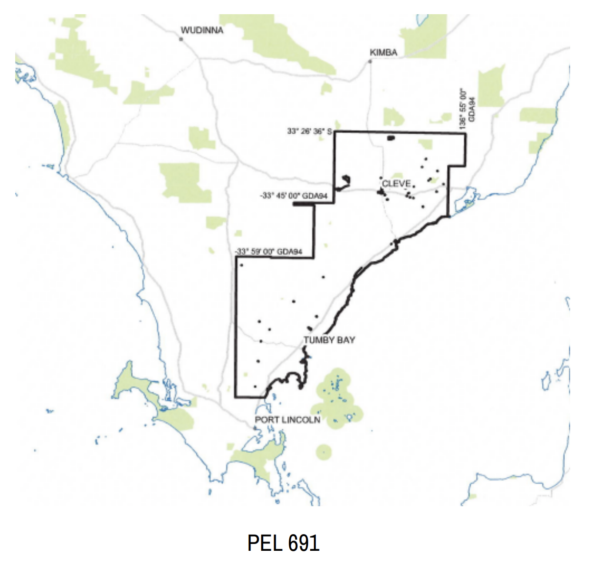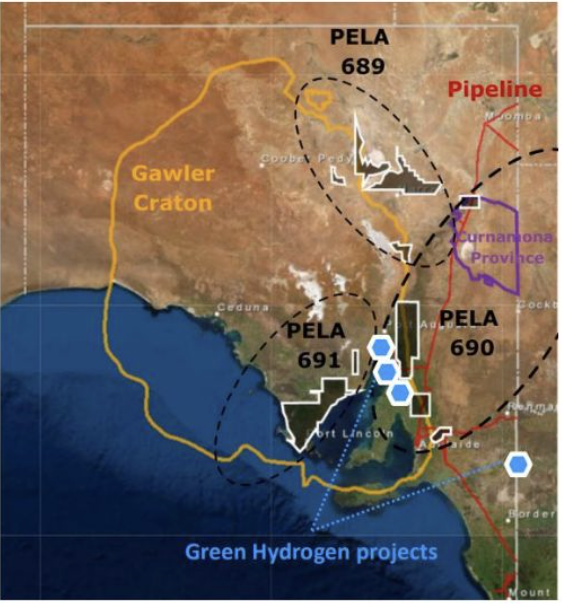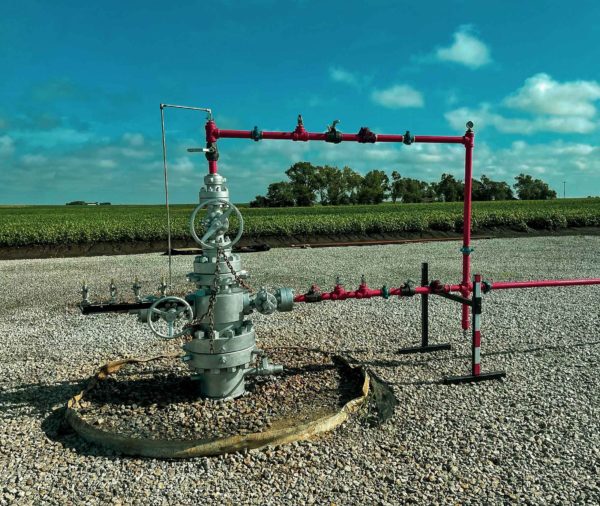The Commonwealth Scientific and Industrial Research Organisation (CSIRO), Australia’s chief science agency, is set to work a project that will explore natural hydrogen seeps and migration pathways in South Australia.
The ‘desktop’ study, meaning it carried out purely through research rather than physical investigations, will be conducted by the CSIRO looking at the Eyre Peninsula, west of Adelaide, where natural hydrogen company H2EX holds an exploration license.

Image: H2EX
South Australia is attracting a huge amount of natural hydrogen attention as Australia’s only jurisdiction with a legislative framework to allow for natural hydrogen exploration following amendments in February 2021.
In 12 months following that amendment, one third of the state’s landmass had been snapped up by rush of companies applying for, and often being granted, exploration licenses for natural hydrogen, sometimes referred to as ‘gold’ or ‘white’ hydrogen.
Proponents of natural hydrogen believe the naturally occuring underground accumulations of the molecule, which have been known about for many decades but have not previously had a global market, could deliver sizeable quantities of hydrogen extremely quickly and affordably.
The outcomes of the CSIRO’s study are expected by the end of the year.
H2EX
There are just a handful of companies in Australia pursuing natural hydrogen today with the Perth-based company H2EX, registered in 2021, one of them. In June, the company was granted exploration license 691 (“PEL 691”) for an area covering 5,991 square kilometres (sqkm) in the Eyre Peninsula.
In addition to PEL 691, H2EX says it has first ranking over approximately 32,000 sqkm of exploration applications in South Australia. “These applications will proceed through the Native Title process prior to the award of exploration licenses,” the company noted in its announcement.

H2EX/LinkedIn
“We are one of the first companies in the world to explore for natural hydrogen. This is an important step in finding clean energy sources created by Mother Nature for Australian local communities and industry,” H2EX CEO and Managing Director Mark Hanna added.
According to the company, two historical oil bores detected high levels of natural hydrogen (in the order of 50-85% purity) at the Eyre Peninsula site.
CSIRO’s natural hydrogen interest
Natural hydrogen has been of interest to the national science agency for some time now, with the government-backed organisation publishing a paper in March 2021 entitled ‘Hydrogen in Australian natural gas: occurrences, sources and resources’.
“There is no question that within Australia and arguably the world, CSIRO is at the forefront of natural hydrogen research and field work,” H2EX Chairman & Non-Executive Director, Peter Coleman, said.

HyTerra
“CSIRO’s leading approach to innovation and technology and proven track record to help commercialise novel ideas makes them the perfect partner for H2EX.”
The study has been enabled by the CSIRO’s Kick-Start initiative, which provides funding and support for Australian startups and small businesses to access CSIRO’s research expertise and capabilities to help develop their business.
Mali natural hydrogen pilot
To date, the only major discovery and implementation of natural hydrogen reservoirs has been in Mali in West Africa. In 2012, natural hydrogen was discovered and eventually connected to a fuel cell to supply electricity to the town of Bourabougu.
Canadian company Hydroma, behind the project, is now preparing to produce and export its natural hydrogen. It is far from the only company with such visions.
Natural hydrogen exploration in Australia
As of February, 18 exploration licenses had been granted or applied for South Australia alone. Many of the hopeful companies, which include Queensland’s Gold Hydrogen and Perth-based HyTerra, appear confident other Australian states will soon amend their legislation to allow for natural hydrogen exploration and ultimately projects.
This content is protected by copyright and may not be reused. If you want to cooperate with us and would like to reuse some of our content, please contact: editors@pv-magazine.com.









By submitting this form you agree to pv magazine using your data for the purposes of publishing your comment.
Your personal data will only be disclosed or otherwise transmitted to third parties for the purposes of spam filtering or if this is necessary for technical maintenance of the website. Any other transfer to third parties will not take place unless this is justified on the basis of applicable data protection regulations or if pv magazine is legally obliged to do so.
You may revoke this consent at any time with effect for the future, in which case your personal data will be deleted immediately. Otherwise, your data will be deleted if pv magazine has processed your request or the purpose of data storage is fulfilled.
Further information on data privacy can be found in our Data Protection Policy.